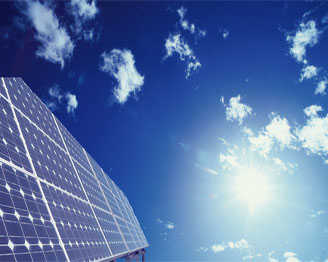 |
| (Source: http://i-solarpanel.yolasite.com/) |
A new year means fresh energy, and new goals. With respect to this blog it means more posts of interesting ideas and concepts and perhaps deeper discussions of ideas previously mentioned.
To start the year, I thought I would quickly make a mental note to myself about something I just listened to on "Deutschland Radio - Umwelt und Verbraucher" which translates into "German Radio - the Environment and the Consumer". Side Note: It's interesting that in the US, environmental protection and sustainability are often mentioned in conjunction with energy-independence, and security of the country while in Germany often times environmental protection and protecting the consumer are linked more often.
Anyway, the topic of discussion was what to do with solar panels after their useful time is up. The German and European answer: Come up with legislature that require solar panel manufacturers to take back and recycle an increasing amount of solar panels. This law would apply to all manufacturers including those from other countries.
Why was legislation required?
Apparently, industry was not able to come up with guidelines all would stick to on their own.
What is the rational for this legislation now?
The lifespan of solar panels is about 20-30 years. Some solar panels contain toxic substances (like heavy metals etc.). A take-back and recycling mandate on the manufacturers makes sure that these toxic substances are disposed of in a responsible manner. More importantly though, it ensures that valuable resources are conserved and reintroduced into the value chain rather than having to mine these increasingly rare resources anew. Solar panels are rich sources for silicon, aluminum and glass afterall.
My personal opinion
While in the US, we are still struggling to come up with any CONSISTENT long-term framework, and the discussion of what to do with solar panels at the end of their useful life has note even entered the discussion, I think it's great for a government to be capabble of thinking this far into the future. By blogging about this, I hope to contribute a teeny-tiny bit to a starting discussion of what to do about solar panels after we are done using them here in the US as well.

Renewable energies play an important role in the global commercial energy map. Many industries and private companies are getting a lot of benefits by using Renewable energy.
ReplyDeleterenewable energy Kent.